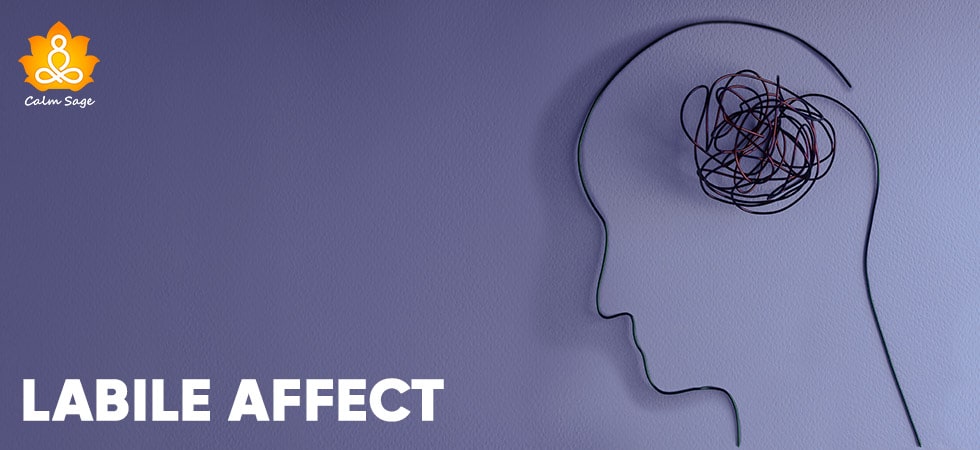Can Early Puberty Affect Your Teen’s Mental Health? Here’s How!

No one can forget the phase of their life when they transition into puberty. In one of the most awkward phases of our lives, we are never ready for puberty, especially when it pops up earlier than usual. This awkward phase of our life often accompanies a wide range of emotions.
While typical puberty occurs when a kid is between 10-12 years old, there’s new research that says early puberty occurs between the ages of 8-9 (sometimes even earlier) and can have negative effects on the kid’s mental health.
We’re increasingly realizing that social and emotional disadvantages and stresses in childhood may trigger early puberty. This possibility was explored in a study published in the Journal of Adolescent Health, which found children who go through puberty early showed signs of poorer mental health in early childhood.
Early puberty sounds innocent and harmful but it can accompany several emotional and mental consequences, let alone physical ones.
Below, let’s explore the signs, causes, and potentially harmful effects of early puberty in pre-teens and how, as a parent/elder sibling, or guardian, can help them during this phase.
Early Puberty, How To Look Out For It?
Early puberty in girls occurs at age 8 and early puberty in boys occurs at age 9 (or below). In any case, early puberty signs to look out for can include:
In Girls:
- Breasts growth
- Underarm or pubic hair growth
- Quick growth spurt
- Beginning of menstruation
- Acne
- Increasing body odor
In Boys:
- Enlargement of genitals
- Underarm, facial, or pubic hair growth
- Quick growth spurt
- Deepening of the voice
- Acne
- Body odor
Many children may only have some of these signs of early puberty. A preteen girl may start menstruating but won’t have any other signs or a boy may undergo a growth spurt but not show any other signs of puberty.
What May Cause Early Puberty In Kids?
There can be no exact reason behind the signs and beginning of early puberty but some factors might contribute to the signs of early puberty:
- Genetics: Did you know that 5% of boys and 1% of girls might inherit early puberty from their parents?
- Poor Nutrition: Poor nutrition in childhood can also contribute to early puberty and even lead to obesity
- Environmental Factors: Any external factors such as chemical or environmental influence may also affect the child
- Chemical Imbalance In Brain: If the child has sustained brain damage or any injury to the central nervous system, then they are also at risk of developing signs of early puberty
- Medical Issues: If the kid has been diagnosed with a thyroid disorder, ovarian tumor, or any other medical issue, then they can show signs of early puberty. Please keep in mind that early puberty does not develop because of a medical issue, it’s just one of the causes
Psychological Effects Of Early Puberty
There are many theories about why the early timing of puberty is linked to these negative mental health outcomes. This, of course, might differ between boys and girls as girls go through different experiences from boys – socially, emotionally, and physically – during early puberty.
While pubertal processes are important for well-being in boys and gender-diverse adolescents – and further studies involving children are critical – more research to date has focused on the reasons why earlier-developing girls are at increased risk for depression and anxiety.
One reason is that higher levels of hormones including estrogen and testosterone can directly affect the development of the brain.
“Research over the years has suggested that puberty does plan an important role in overall mental health. How puberty and the hormone changes that occur affect mental health is complex. There are many aspects to consider including how a young person mentally processes puberty changes such as new secondary sexual characteristics (i.e. breast developments, genital changes, body hair, etc.).”
– says, Dr. Jasmine M. Reese, Assistant Professor of Pediatrics at Johns Hopkins School of Medicine.
Teenagers who experience early puberty are more likely to have mental health problems.
Young people may experience a higher risk of mental health issues with early puberty. Those most frequent in the teenage years include anxiety and depression, eating disorders, conduct disorder (antisocial behavior), attention deficit and hyperactivity disorder (ADHD), and even self-harm.
Children who experience early puberty may also have higher rates of depression and anxiety compared to their peers. This impact is more common in girls and the research findings that involve boys are not yet clear nor constant. Perhaps most disturbingly, the enhanced risk of depression and anxiety may stretch into the college years.
In girls, early puberty can be visible in irritability, mood swings, and emotional outbursts, whereas in boys, it can recognize as being aggressive, moody, and having an inappropriate sex drive.
For young children, anything out of the norm is something wrong and abnormal so when they go through early puberty when the rest of their peers have not, it can make them vulnerable to bullying and teasing from others. This kind of reaction from their peers can lead to psychological effects such as depression, low confidence, and low self-esteem.
Other effects of early puberty can manifest as body image issues, greater risk of substance abuse, poor academic performance, and stunted emotional maturity.
How Can You Support Your Teen?
As a parent, it must be difficult to see your child struggling with themselves when they are meant to enjoy the last phase of childhood they’ve left. While a child struggling with the psychological effects of early puberty might try to push their parent, siblings, or guardians away from them.
If your child is pushing you away, here are some ways you can help and guide your child through their frustrations due to the effects of early puberty.
1. Talk to them: Explain to them what’s happening in their body, why it’s happening, and what else can they expect. Describe to them the effects of early puberty so they are aware of the way their body and mind change.
2. Reassure them: Let your child understand that what they are experiencing is normal and not something they should be ashamed of. The effects of early puberty are OK and this experience is common in older teens as well.
3. Speak about treatment: If your child needs professional medical intervention, then talk to them about the treatment. Don’t shy away from informing them about their treatment.
Also Read: Teen Counseling Review: Helping Teens Thrive Through Professional Guidance
As a parent, here are some signs that you should watch out for if your child is going through early puberty:
- They are being bullied
- They are getting poor grades
- They are encountering problems at school
- They are losing interest in things they like
- They are becoming socially withdrawn
- They are showing signs of depression
You need to create a safe environment for your child to feel secure enough to speak about their issues – physical, emotional, mental, or even social. Avoid commenting on how their physical appearance is changing or how they get easily emotional these days. These things won’t help reassure your child.
You can also try to encourage them to participate in sports or extracurricular activities in school to combat some of the negative emotions and effects of early puberty. If you feel that your teen is not taking the effects of early puberty well, then you can talk to a child psychologist or a pediatrician.
Bottom Line
Puberty is a time of increased stress and challenges, as children adapt to their changing social roles. For this reason, mental health issues often first emerge in adolescence. Younger children and those with fewer social and emotional resources may find this phase more difficult, which increases their risk of subsequent mental health difficulties.
By openly communicating with your child about their feelings, emotions, and thoughts as they struggle with the effects of early puberty can help you build a strong support system early to help when their moods plunge or when their behavior changes.
Early puberty, even typical puberty can be challenging but when a teen has the right support system and awareness of the effects of early puberty and puberty, transitioning from this awkward phase can become smooth.
I hope this article will help you understand the psychological effects of early puberty and how it can affect your child.
For more, you can write to us at info@calmsage.com or DM us on social media. You can also share your thoughts with us in the comments below.
Take Care!




















